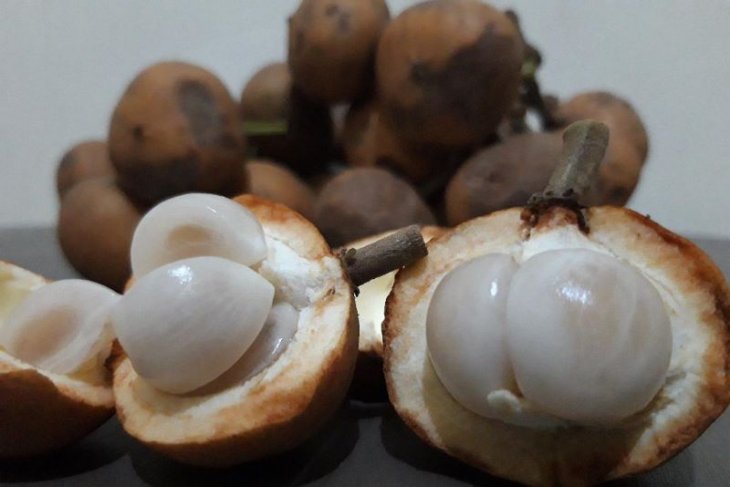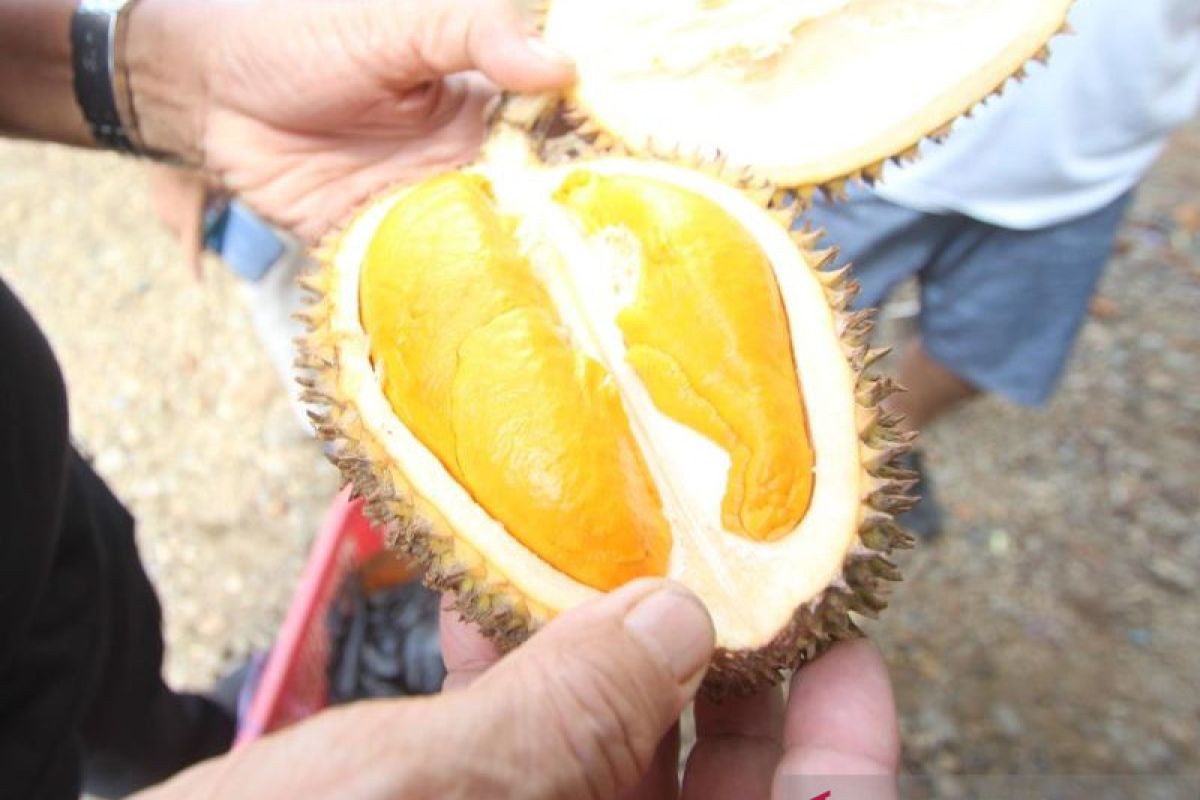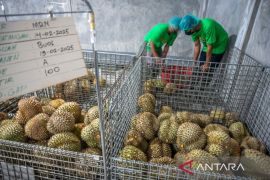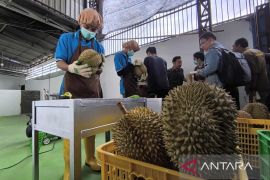In South Kalimantan, in fact, the period is also the peak season for other local fruits, many of which have been identified as rare fruits.
There are papaken and mantuala that are still in the same family of durian; mangosteen-like Kapul; Pupuan and Keledang, a family of jackfruit; and Langsat.
Not all traditional markets in South Kalimantan sell these exotic fruits. However, in Paringin Market in Balangan District, one can still find these rare and exotic fruits of Kalimantan.
Papaken (Durio kutejensis) can be spotted in some local market in January.
While another durian species -- the common durian (Durio zibethinus) -- is known for its strong odor that some people find quite overpowering and unpleasant and may linger for hours, Papaken does not emit such odor.
It has thick, orange flesh, with a mild, ice cream-like sweet taste and creamy texture similar to that of common durian. The fruit is also said to have fewer of the unpleasant flavors as that of D. zibethinus.
However, for true durian lovers, papaken, or lai, which the IUCN considers as a threatened species, is often called as "fake durian".
Mantuala is a cross-breed between papaken and common durian. It tastes more like papaken than common durian.
During its peak season, Papaken is sold only at Rp10 thousand each, while common durian is sold at Rp10 thousand to Rp25 thousand each depending on the size.
Pupuan
Kalimantan is known for its profuse variety of fruits. However, dozens of these endemic species are threatened varieties that are likely to become extinct due to widespread logging, plantations, and mining.
During a trip from North Hulu Sungai District to Banjarmasin, the capital city of South Kalimantan recently, a local citizen Hassan Zainuddin, told the driver to stop when he spotted a fruit trader by the roadside.
"My wife asked me to buy kulidang," he stated.
Kulidang or keledang (Artocarpus lanceifolius Roxb) is a rare exotic fruit of Kalimantan that can hardly be found in big cities. Children living in big cities, such as Banjarmasin, are not familiar with this fruit.
Keledang is similar in structure to the Jackfruit, although vastly different in size.
This time, Hassan could only find Pupuan or Mentawa (Artocarpus anisophyllus), another member of the family having smaller seeds and thin flesh.
Mentawa has a brown-yellow fruit, with orange-red flesh. It tastes similar to a pumpkin in flavor, while it also has edible seeds.
These fruits can be found in December. The trader said, he had obtained the fruits from the nearby forest, as farmers rarely cultivated them.
Hassan bought Mentawa at Rp5,000.

Kapul has a brown rind, and the skin inside is white and soft, with hard seed. It tastes sweet and a little bit sour, with small seed and thin flesh.
Kapul has a structure that bears resemblance to mangosteen, and despite its outer appearance, mangosteen has a dark red to purple rind.
Asya, a seven-year-old girl, shook her head when offered to taste Kapul and inquired about the name of the fruit.
"I haven't seen this fruit for years. I used to eat it in my childhood," Asya's mother stated.
Langsat (Lansium parasiticum) is a fruit that can still be easily found in South Kalimantan's capital city of Banjarmasin. Langsat Tanjung is a popular variety for its sweet taste.
The fruit can be elliptical, ovoid, or round in shape, and are borne in clusters akin to grapes. The larger fruits are the variety known as duku covered by thin, yellow hair that lend a slightly fuzzy appearance. The fruit contains one to three seeds, covered with a thick, clear-white aril that tastes sweet and sour.
During its peak season, Langsat Tanjung is sold at Rp8,000 to Rp10,000 per kg.
Related news: Residents on Sebatik Island hold durian festival
Related news: Abu Dhabi crown prince tastes durian, mangosteen at Bogor Palace
Editor: Rahmad Nasution
Copyright © ANTARA 2020












